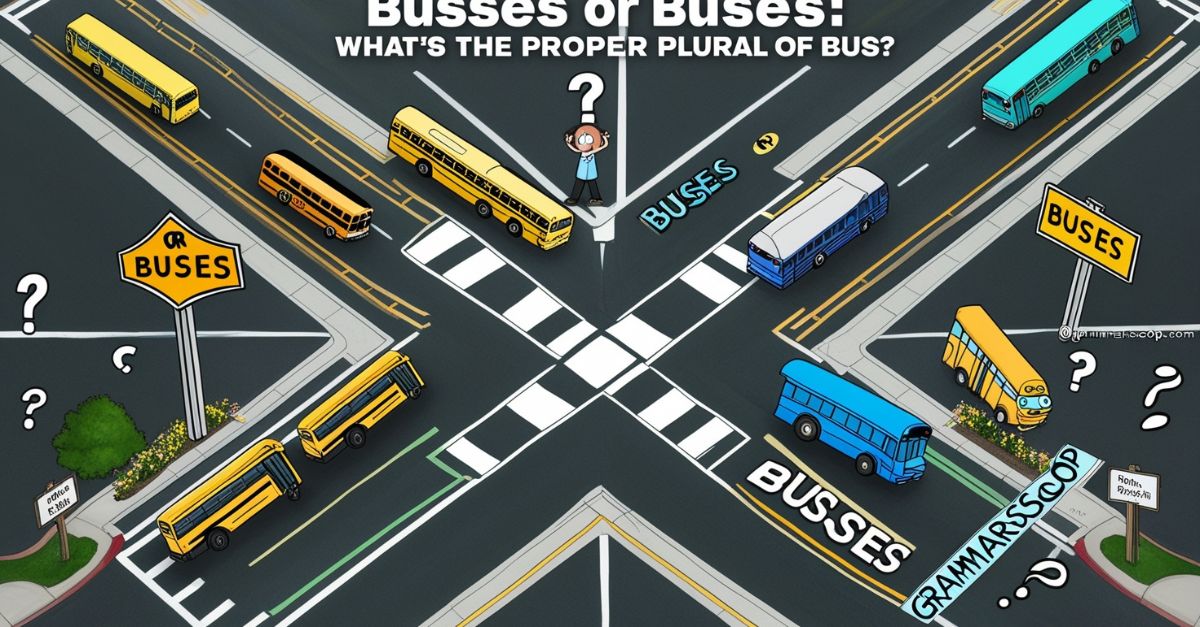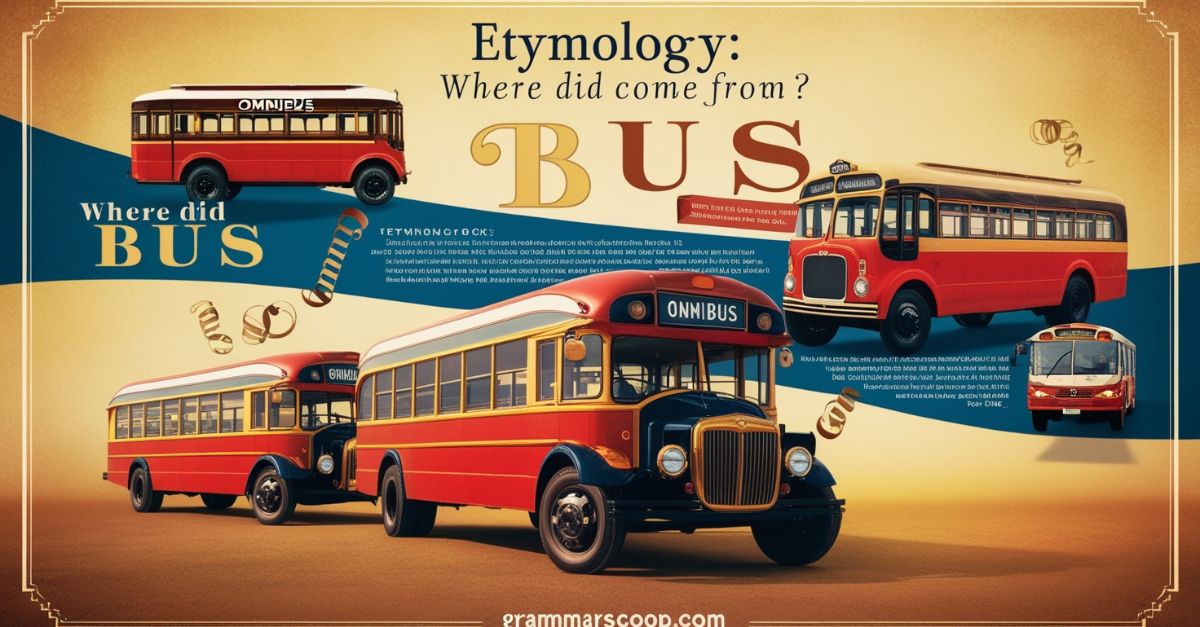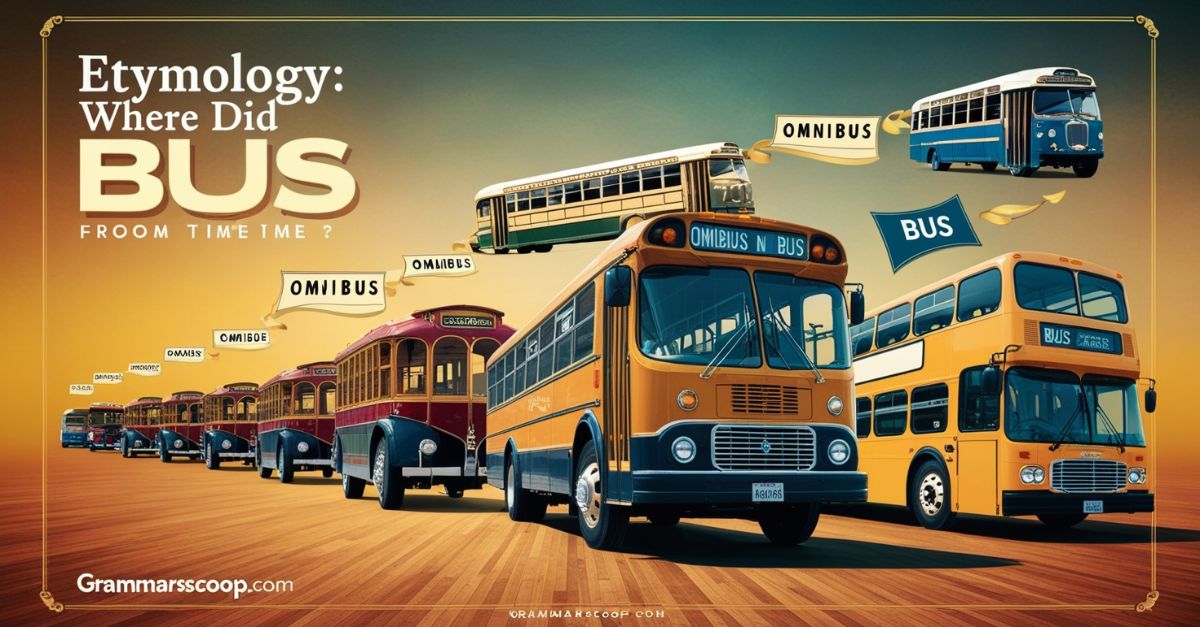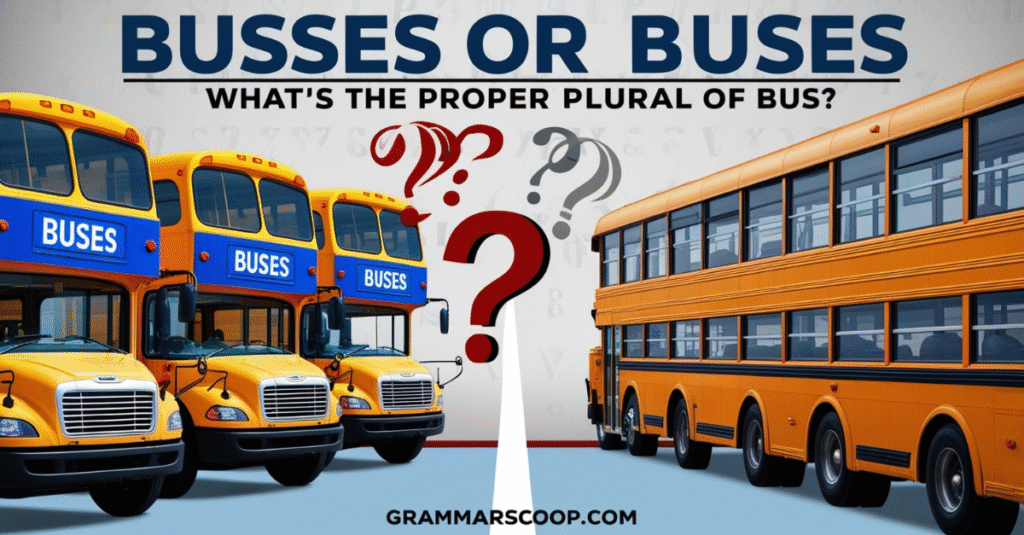When you’re writing about public transportation, school vehicles, or even computer components, you may stop and ask: what is the correct bus plural form? Is it busses or buses? The answer seems simple, yet many writers and even native speakers hesitate. This article takes a deep dive into the correct plural form of “bus,” explores the roots of the confusion, and explains the grammar behind this common English dilemma.
Let’s settle this with clarity, not confusion.
Quick Answer: Is It Buses or Busses?
The correct plural form of bus is buses.
That’s the preferred spelling in Modern English and accepted across all major style guides. The variant busses exists, but it is:
- Rarely used today
- Often confused with the archaic term “buss” (meaning kiss)
- Considered incorrect in most contexts involving transportation or computing
Buses appears in formal publications, government documents, dictionaries, and standard grammar standards worldwide.
“City buses are becoming more fuel-efficient to combat overcrowding in urban transportation systems.” — The New York Times
Why Busses Causes Confusion
The confusion between buses or busses stems from basic English spelling conventions. Let’s unpack the reasons:
Doubling the Consonant
Some English words double the final consonant before adding -es:
| Singular | Incorrect Plural | Correct Plural |
|---|---|---|
| kiss | kisss | kisses |
| class | classs | classes |
| bus | busses | buses |
Because “kiss” becomes “kisses,” some might assume “bus” becomes “busses.” But bus doesn’t follow that rule. Instead, it follows the standard pluralization rules for most nouns ending in -s.
Phonetic Influence
The spoken plural of bus sounds like “buss-iz,” which may lead some to spell it as busses. This is a classic case of spelling influenced by pronunciation.
Grammar Rules Behind Buses

Let’s go back to the basics of grammar standards to clarify why buses is correct.
Standard Rule for Nouns Ending in -S
In Modern English, when a noun ends in -s, -ss, -sh, -ch, -x, or -z, you usually add -es to make it plural:
- Glass → Glasses
- Class → Classes
- Box → Boxes
- Bus → Buses
Adding only -s would result in “buss,” which is incorrect. Adding -es follows the rule and maintains proper pronunciation.
Why Busses is Incorrect (Most of the Time)
Busses looks like a plausible plural, but it actually:
- Breaks from conventional English spelling conventions
- Causes confusion with the word “buss,” an archaic term for kiss
- Is rarely used in formal writing
When “Busses” is Technically Correct
There is one narrow exception where busses may be used: as the third-person singular or plural form of the verb “to buss.”
Buss (verb): to kiss
Buss is a rare or old-fashioned verb that means “to kiss”. So you might (theoretically) write:
“The actress busses her fans on the cheek.”
Or, in plural past tense:
“They exchanged gentle busses before parting.”
This usage is historical and nearly obsolete.
In short: if you’re writing about vehicles, never use busses.
Real Examples from Everyday Usage

Real-world sources overwhelmingly use buses:
News & Media:
- “Electric buses to replace diesel fleet by 2030″ — BBC
- “City introduces new school buses with solar panels” — CNN
Government & Transport Authorities:
- US Department of Transportation: “Guidelines for public transportation: modern buses must comply with ADA.”
- Transport for London: “Fleet of 9,000 red double-decker buses now includes 1,000 electric units.”
Explore further:
- Cacoon or Cocoon: Which Spelling is Correct?
- Past Tense of Swing? Is It Swing, Swang, or Swung?
- Re-sign Vs Resign? Understand the Proper Usage of Each
- Cancelation or Cancellation: Which Spelling is Correct?
- Afterward or Afterwards: Is There Any Difference?
Dictionary Definitions:
| Source | Accepted Plural |
| Merriam-Webster | buses |
| Oxford Dictionary | buses |
| Cambridge | buses |
Busses appears only as an alternative spelling or as a historical note.
Words with Comparable Pluralization Quirks
Some English nouns confuse learners due to inconsistent rules. Here are similar words:
| Singular | Plural | Notes |
| gas | gases | Not “gasses,” which would be a verb |
| class | classes | Follows same rule as “bus” |
| coach | coaches | Similar in meaning and pluralization |
| box | boxes | Classic example of -es ending |
These follow pluralization rules similar to bus ka pluralization, reinforcing that buses is the logical and standard plural form.
Etymology: Where Did Bus Come From?

The word bus is a colloquial abbreviation of omnibus, a Latin term meaning “for all.”
Historical Timeline:
- 18th and 19th centuries: Public carriages called omnibuses appeared in Europe.
- The term was shortened to bus in everyday speech.
- As technology advanced, electric buses, double-decker buses, and charter buses emerged.
Why It Matters:
Understanding the etymology helps explain why “bus” pluralizes in the standard way, unlike some other Latin-root words.
Usage Guidelines for Writers and Editors
If you’re a writer, editor, or student, follow these style and usage recommendations:
Preferred Usage by Style Guides:
| Style Guide | Preferred Plural |
| AP Stylebook | buses |
| Chicago Manual of Style | buses |
| MLA | buses |
Tips:
- Use buses for all transportation and computing contexts
- Avoid busses unless you’re referencing kisses in a historical or poetic context
- In technical documentation, refer to data buses, address buses, or control buses, not “busses”
Buses in Computing Contexts
The term bus is also widely used in computer components and digital systems:
- Data buses: Transfer information between components
- Address buses: Specify memory addresses
- Control buses: Direct operations in a computer
Again, the correct plural is always buses, even in computing contexts.
“Modern CPUs contain multiple buses to ensure high-speed data transfer and efficient processing.”
Case Study: New York City Transit
New York City operates one of the largest public transportation systems in the world. As of 2025:
- Over 5,700 city buses in operation
- 600+ electric buses
- 4.3 million daily passengers
All official documents, press releases, and public materials refer exclusively to “buses” as the correct plural form.
Final Word: Stick with Buses
When writing or speaking in Standard English, buses is the correct and accepted plural of bus. It aligns with grammar standards, follows English spelling conventions, and is used in all major contexts: from school buses to data buses.
To recap:
- Use “buses” when referring to vehicles, transit, or computing
- Avoid “busses”, except for its rare use as a verb meaning “to kiss”
- Remember the etymology: from omnibus, meaning “for all”
The next time you’re writing about commuters piling into city buses or describing how control buses operate within a processor, you can write confidently, knowing you’re using the correct plural form.
FAQs about busses or buses
- Which is correct, buses or busses?
Buses is the correct plural form of “bus”; “busses” is a rare variant or means kisses.
- What is the plural form of bus?
The plural form of bus is buses.
- Is it buses or busses in British English?
In British English, buses is the standard plural form.
- Why is the S in bus not doubled?
Because “bus” ends in a single consonant after a short vowel, but it’s not stressed on the last syllable, so no doubling is needed.
- Why do buses only have one S?
English spelling rules don’t require doubling the final consonant in “bus” when adding -es.
- What is a double bus called?
A double-decker bus.

Lisa Morris is a seasoned blogger and language enthusiast with a passion for making grammar simple and engaging. At Grammar Scoop, she shares clear, concise tips that help readers master the rules of English with confidence.






